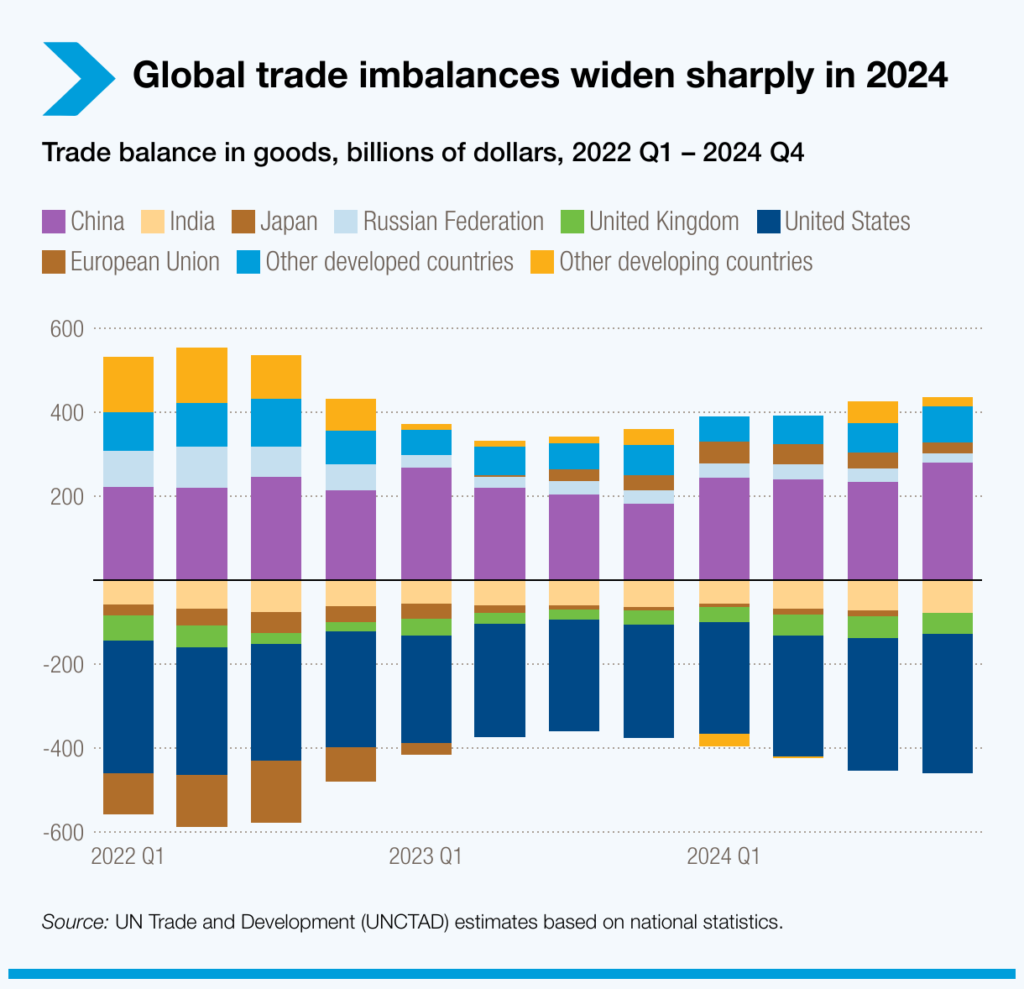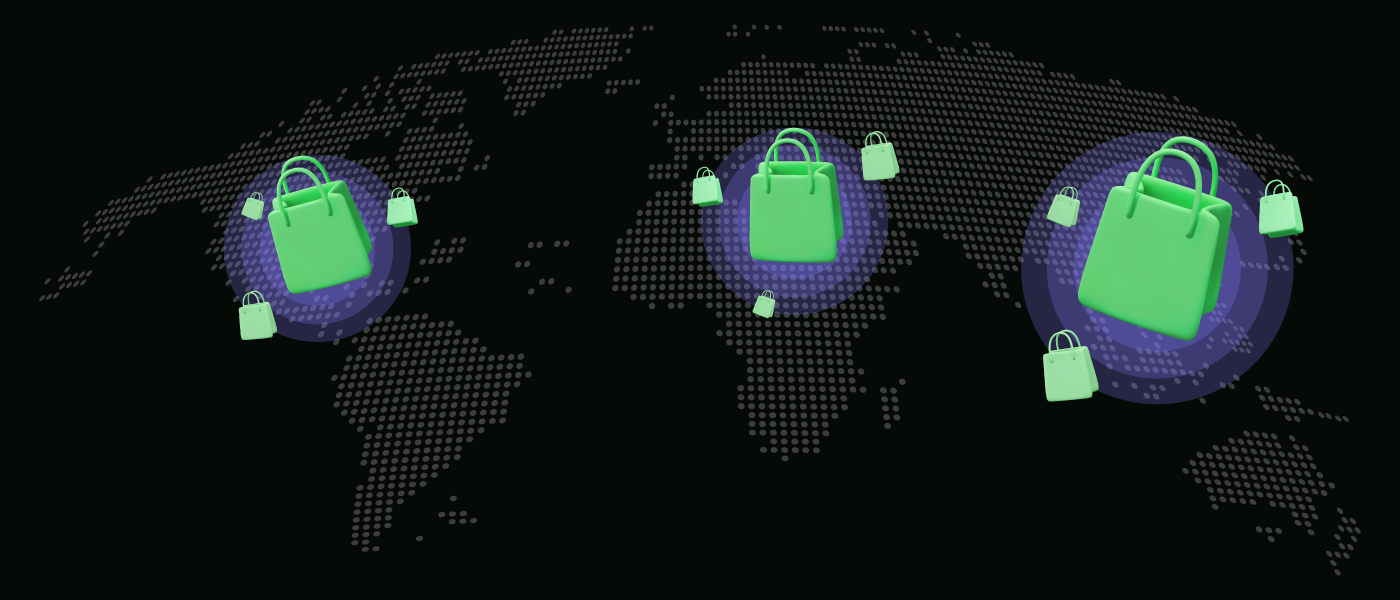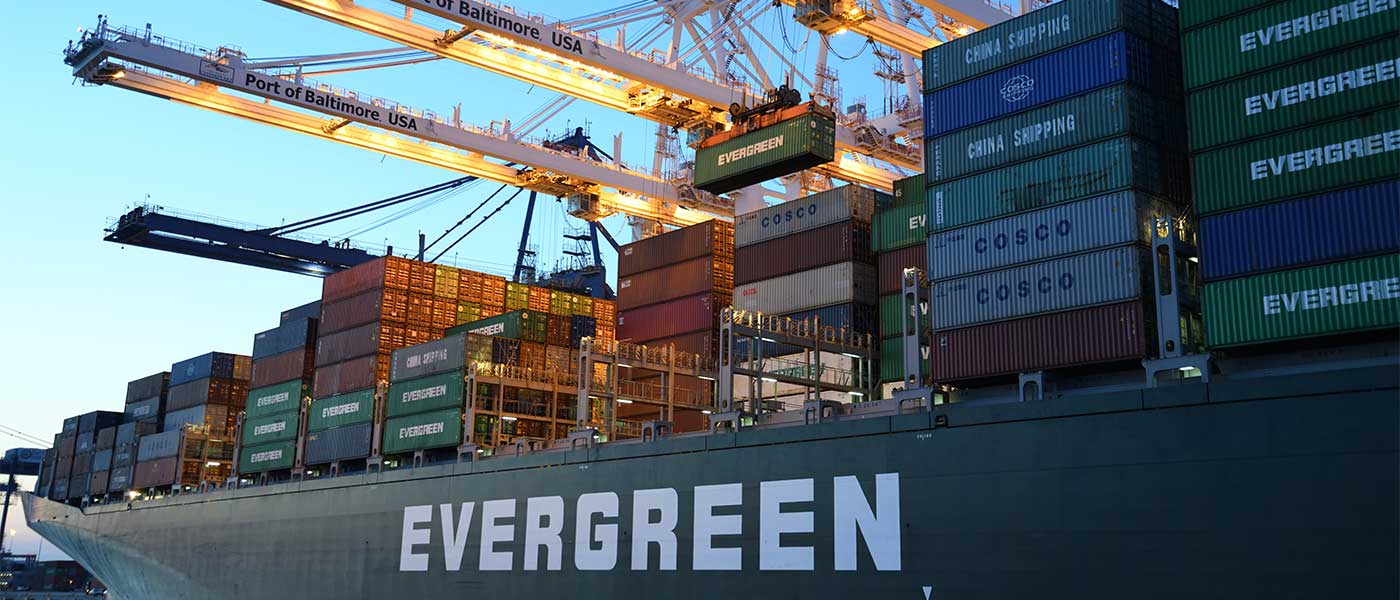Recent policy changes, import tariff revisions for Chinese-origin goods, and the possible suspension of the Section 321 de-minimis loophole are changing how e-commerce sellers approach their sourcing strategy. For e-commerce sellers relying on importing inventory from China, tariff revisions impact their gains and almost nullify the costs they save. The new way forward is to understand the sentiments of the U.S. Shoppers. And that would mean opting for inventory that’s “Not Made In China”.
The traditional approach to sourcing for e-commerce sellers in the U.S. will shift towards building supply chain resiliences to cater to the rising demand from the local market. Geopolitical tensions, rising labor costs in traditional manufacturing centers, and new tariffs set sellers to explore alternatives to the “Made in China” tag. But could there be a Chinese alternative as a strong diversification strategy? In this blog, we look at key manufacturing hubs across Southeast Asia that U.S. e-commerce sellers can leverage during this time of ongoing trade wars. A dynamic mix of emerging and matured economies, expanding industrial bases, and trade-friendly bilateral agreements make the region an attractive alternative for sellers looking to diversify their global supply chains.
How E-commerce Relied Heavily on Sourcing from China
For years, China has been the source that catered to U.S. consumerism. Many products on online marketplaces and retail outlets previously carried and continue to carry the “Made In China” tag.
Abundance of raw materials, favorable laws to boost manufacturing, and access to global markets propelled China’s race to become a global manufacturing powerhouse. For years, sellers have capitalized on the country’s economical labor and low production costs to source inventory. That, coupled with the de-minimis loophole, allowed sellers to import products up to $800 for free into the U.S. through Mexico.
Major retailers and businesses saw this opportunity to cut costs and moved production to the country. It was financially viable for small and emerging businesses to import these low-cost products from China rather than depend on local manufacturers, who would charge higher prices.
With the popularity of e-commerce, the increased purchasing power of the average American shopper, and the choice to opt for products that have an attractive price compared to locally sourced products, Chinese imports have cemented their position in the U.S. markets.
Top Made in China products Imported Into The United States
China’s lower inflation and access to surplus raw materials have been pivotal in the region’s becoming a global exporting powerhouse. China’s trade balance remained surplus, increasing from $243 billion in Q1 2024 to $280 billion in Q4 2024.

But what does China manufacture well and what has sellers in the U.S. imported from the country so far? Let’s take a look:
China’s lower inflation and access to surplus raw materials have been pivotal in the region being a global exporting powerhouse. China’s trade balance in export goods increased from $234 billion in 2023 to $280 billion in 2024.
Electronics, Tech Accessories, and Consumer Appliances
Mobile Phone Accessories: Phone cases, chargers, earbuds, power banks, data cables, VR headsets, wireless chargers.
Smart Devices: Smartwatches, fitness trackers, drones, Bluetooth speakers, mini projectors.
Home Electronics: Smart home devices, LED smart bulbs, kitchen appliances (e.g., blenders.
Gaming Accessories: Noise cancellation headsets for gamers.
Fashion and Apparel
Clothing: Activewear sets, custom t-shirts, eco-friendly fabric apparel, trendy kids’ clothing, winter jackets.
Shoes: casual shoes, running shoes, and formal shoes.
Accessories: Handbags, jewelry, sunglasses, socks, affordable hair styling products
Home and Kitchen
Kitchenware: Silicone baking tools, stackable food containers, premium knife sets, cast iron cookware, insulated stainless steel tumblers.
Home Goods: LED light strips, decor, gardening accessories, smart home devices, robotic vacuums, foldable furniture.
Appliances: Air purifiers, toasters, grillers, ovens, blenders, compact countertop ice maker.
Beauty and Personal Care
Skincare: Ultrasonic facial cleansers, gua sha tools, eco-friendly skincare, hydrocolloid acne patches.
Hair Care: Hair extensions, hair sprays, curlers and dryers, conditioners, serums.
Cosmetics: Makeup brushes, lipsticks, eyeshadow palettes, highlighters.
Pet Supplies
Pet Accessories: Personalized collars, orthopaedic beds, smart feeders, pet grooming products.
Pet Food and Toys: Pet food, pet homes, harnesses, pet toys, grooming products.
Health and Fitness
Fitness Equipment: Adjustable resistance bands, massage guns, compact gym gear, bags, outdoor camping and trekking essentials, indoor equipment, sports gear.
Supplements: Whey protein supplements, weight-loss supplements, cosmetology supplements, bulking additives.
Toys and Games
STEM toys, stuffed toys, wooden toys, sports and recreation, plushies, puzzles, gaming toys, baby toys, LED toys, baby monitors.
Baby Products
Feeding supplies, strollers, walkers, carriers, baby clothing, wet wipes, bedding essentials, baby food, and toys.
Office and School Supplies
Desk Accessories: Desk organizers, notebooks, fountain pens, laptop stands.
Stationery Items: Writing Instruments, paints, brushes, gums, fasteners, measurement items, books, bags, and cases.
Automotive Accessories
Car Parts: Tires, alloy wheels, wires, connectors, engine components, filters, seat covers, car organizers.
How Tariff updates impact e-commerce sellers selling into the US
All that changed in February 2025. A series of executive orders, revised import tariffs, and the potential suspension of the de-minimis loophole have become a blocker for several e-commerce sellers. While the de-minimis provision is still intact, it may not be the way forward as the relaxation of import duties is set to be suspended in the coming months.
As of March, the following import tariffs apply:
- 25% on imports from Mexico and Canada
- 10% additional tariffs on imports from China
- 25% tariffs on Steel, aluminium, and steel derivatives
These proposed tariffs impact sellers as the gains they are set to make from China’s economical manufacturing are impacted by the increased import tariffs. To sell at a competitive price in the U.S. market, sellers must diversify their approach to sourcing products by friendshoring.
Diversifying the supply chain sourcing strategy can help mitigate the risk of high import tariffs while making sure sellers can cater to the demand from the local shoppers. The search for Not Made In China is officially in place.
Top Overseas Sourcing Alternatives to China
Vietnam
Vietnam has established itself as a leading center for manufacturing and exports within Southeast Asia. With the announcement of the recent executive orders, many industries in China are looking to set up their base in Vietnam. Vietnam’s export turnover in 2024 grew by 14.3% YoY to US$405.5 billion. The major driver of this growth is manufacturing, contributing nearly 85% of the total export value.
The country’s manufacturing sector produces key e-commerce products for export like:
- Textiles
- Apparel
- Leather items
- Electronics
- Furniture production
It is interesting to note that Vietnam is currently the largest exporter in Southeast Asia. For US e-commerce sellers, Vietnam is an ideal country to become a plus one sourcing partner of Not Made in China products.
The top manufactured products exported from Vietnam to the United States include electrical and electronic equipment, along with other significant exports such as furniture, lighting signs, prefabricated construction items, articles of apparel, and footwear.
Indonesia
Indonesia is one of the Southeast Asian countries with the highest export growth rate. It invests heavily in developing its manufacturing and export capabilities, especially to markets like the United States. The country banks heavily on its vast natural resources, particularly nickel reserves, to establish itself as a key manufacturer of electric vehicles (EVs).
Key export industries in Indonesia include
- Electronics
- Automotive
- Textiles
- Petrochemical products
- Coffee Products
- Rubber Items
- Handicrafts
- Toys
For US e-commerce sellers, Indonesia offers various Not Made In China products for sourcing. Major manufactured goods exported to the United States include animal and vegetable fats and oils, and other notable exports are apparel, footwear, and rubber. Furniture is also a significant export to the US.
Exports of manufacturing products saw an increase of 4.70 percent from January to November 2024.
Malaysia
Malaysia has established itself as a crucial hub for electronics and semiconductor assembly within Southeast Asia. The country also possesses a strong presence in the automotive sector, palm oil production, and the manufacturing of specialized machinery.
For U.S. e-commerce sellers, Malaysia offers significant sourcing potential, particularly in technology-related products. Top manufactured goods exported from Malaysia to the United States include
- Consumer electronics
- Electrical equipment
- Integrated circuits
- Semiconductor devices
Other significant exports include optical, photo, technical, and medical apparatus, and furniture. US imports from Malaysia are particularly significant in the category of machinery and mechanical appliances. Notably, exports from Malaysia to the US saw a substantial increase of MYR7.39 billion (57.3%) between November 2023 and November 2024.
Thailand
Thailand is often referred to as the “Detroit of Asia,” for its robust automotive manufacturing base. Beyond manufacturing automotive parts and accessories, Thailand also has significant manufacturing capabilities that help sellers in the U.S. import not made in China products like:
- Electronics
- FMCG/ Canned Food
- Petrochemical products
- Beauty and wellness items
- The country is a leading global exporter of natural rubber
For US e-commerce sellers, Thailand is a major exporter to the United States, with total exports reaching $58.5 billion in 2023.
Thailand offers diverse sourcing opportunities across these sectors. Top manufactured products exported from Thailand to the United States include electrical and electronic equipment and other significant exports like machinery, rubber, vehicles, pearls, precious stones, and metals.
Singapore
Singapore is a base that manufactures high-technology electronics and consumer products within Southeast Asia. The country’s manufacturing sector is heavily focused on manufacturing:
- Electronics
- Semiconductors
- Precision engineering
- Biomedical products
Top manufactured not made in China goods exported from Singapore to the United States include electrical and electronic equipment, machinery, optical, photo, technical, and medical apparatus, organic chemicals, mineral fuels and oils.
In the medical space, Singapore also supplies vaccines, blood, antisera, and other pharmaceutical products to the US.
Philippines
The Philippines is fast-tracking growth in its attempts to become a non-made-in-China alternative to manufacturing goods for U.S. consumption.
Key manufacturing sectors in the country include:
- Electronics and consumer appliances
- Textiles and apparel,
- Leather products
- Canned Food
The top manufactured products exported from the Philippines to the United States include electrical and electronic equipment, semiconductor devices and computer peripherals, leather articles, and vegetable and fruit preparations.
Recently, the Philippines has grown to become a top import country for the United States. Electronics and consumer appliance exports play a significant role in this trade, reaching $12.9 billion in 2023 and constituting nearly 60 percent of total Philippine exports.
While finalizing countries to source from is one half of the job, sellers looking to import from countries outside of China should be strategic. While sourcing at low prices is the objective, sellers must be mindful about rewiring how they plan to import, store, and fulfill orders from these countries to the U.S. shoppers.
Coordinating with manufacturers, freight forwarding companies, and importing brokers can help move inventory into the mainland U.S. However, this involves multiple stakeholders and fragmented processes, and a delay will impact your ability to cater to local demand.
Diversification of sourcing for your e-commerce may require you to look outside China. But in pursuit of sourcing from other countries, especially Southeast Asia, it is immensely important to partner with an integrated fulfillment provider that understands the local market, advises you on the best approach, and helps you fulfill orders in the U.S.
How Locad Can Help Accelerate Not Made In China Sourcing Diversification
Homeground Advantage: With a network presence across the US, Locad has its chain of warehouses across several key markets in Southeast Asia. This lets you store inventory sourced from manufacturers, prep the inventory for shipping to the US, and effortlessly import it into the country.
Maintain Continuous Supply: With warehouses closer to significant manufacturing hubs, you can pre-order inventory, store it at low holding costs, and move it to the local warehouse in the U.S. when required.
Proficiency in Import and Export Policies: Locad’s presence in the country of export offers you complete transparency into the export process, guidelines and timeframes, as multiple countries in the region follow diverse sets of rules and regulations.
Adapt and Evolve to Ongoing Regulations: As trading policies governing imports into the U.S. continue to change, Locad’s experts stay connected at the ground level to ensure that your imports meet compliance, leverage existing provisions to minimize tariffs, and prevent consignment from getting stuck at the port.
Increase margins through scalable infrastructure: Locad’s asset-light warehousing framework lets you store your inventory across multiple warehouses within the U.S. without incurring costly overheads.
Local Partnerships: Enlist local carriers in the country of export and inside the U.S. With access to multiple carriers, get preferential rates and cut down on shipping costs significantly.
Tech-enabled Fulfillment: Manage stock across multiple warehouses, inventory linked to multiple online stores, and the status of inventory transit through the Locad Logistics Engine.
Conclusion
In an e-commerce-powered market like the United States, products made in China have been preferred time and time again due to their low costs and availability. Sellers may have to restrategize as the United States is looking to uncouple from China due to strategic trade preferences. One way forward is diversification of sourcing alternatives, which leads to finding low-cost and high-quality products not made in China and from countries that can manufacture large-scale products and share friendly bilateral agreements with the U.S. As more markets to source from emerge, sellers gain a competitive edge by choosing an integrated partner that offers localized fulfillment, along with the infrastructure that offers access to local partnerships, efficient resource utilization, and the bandwidth to scale as your business grows.











